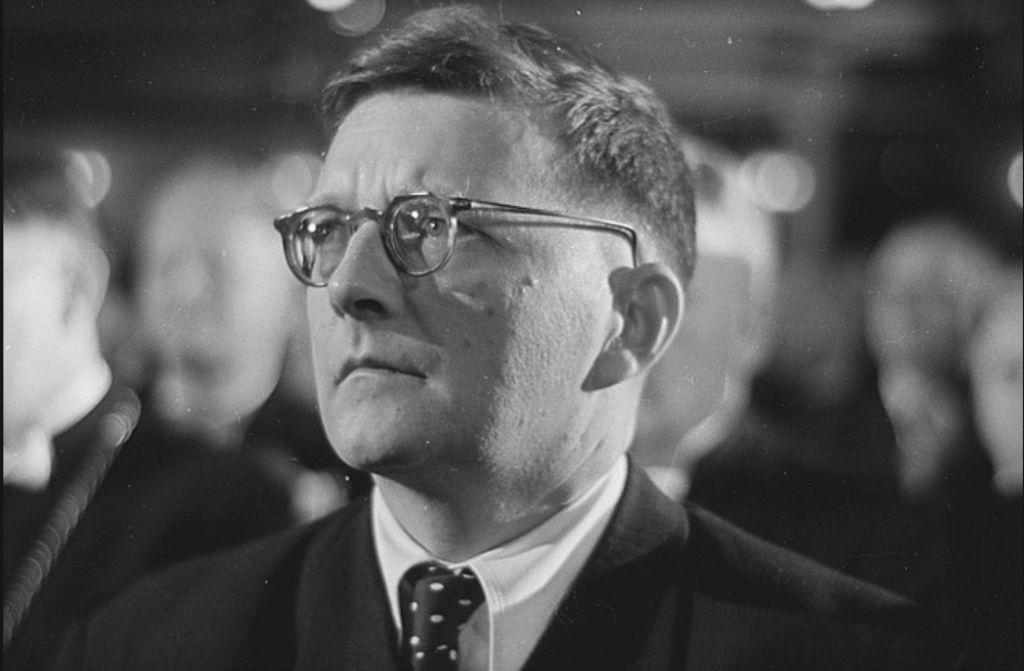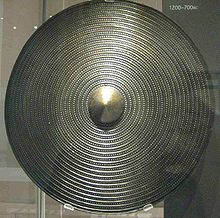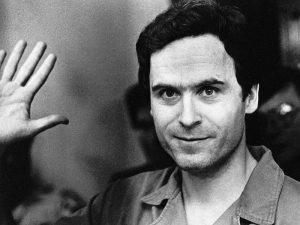What really happened on December 11, 1936 will forever be a mystery to the music world. At the height of Soviet oppression of the arts, Dmitri Shostakovich, a very influential composer in the early twentieth century, took a strong stance against the Soviet Union and Joseph Stalin’s rule. He used his music to speak his mind, and it was rumored that his 4th Symphony would be his loudest, most ambitious piece that he had ever composed. The symphony even called for over one-hundred instruments.1 However, on the day of its debut, Shostakovich abruptly cancelled it. The symphony would not be performed for over two decades. But given how significant the piece was to him, why did Shostakovich cancel it?
Shostakovich spent most of his life in the public eye. He was first introduced to music by his mother, who was a pianist. At eight years old, his mother put him in front of a piano and realized that he was gifted with perfect pitch and an impressive memory that allowed him to play exactly what she had taught him. At only thirteen years old, Shostakovich attended school at St. Petersburg Conservatory, where he started to write and compose music. He was nineteen when his first symphony debuted. It was a huge success and it kick started his music career. From that point on, Shostakovich had become famous.2

By 1931, Shostakovich had composed ballets, operas, film scores, orchestral pieces, and two new symphonies. His art was pure self expression and he was loved by the public. He had so many plans for his next compositions, and he even started to compose music for Lady MacBeth of Mtsensk, the famous Shakespearean tragedy that was being turned into an opera.3 Shostakovich dedicated the opera to his new bride, Nina, and he poured his heart into it.4 It took him several years to fully finish it because of how much sentiment it had for him. But little did he know, that in these years, his art would become completely restricted and even threatened by the Soviet Union.
The Soviet Union was notorious for censorship of the arts, and especially of self expression. In August of 1934, Joseph Stalin declared Socialist Realism as the only form of art that the Soviet Union condoned. Socialist Realism was an established form of art that promoted propaganda for the Soviet Union, and for the Communist Party’s ideals. Its art was described as artificial and narrow. It was ruthlessly enforced by the Soviet Union, and it was the start of a severe censorship of the arts.5 Unfortunately for Shostakovich, and for other Russian artists who did not agree with the Soviet regime and its Socialist Realism, it made them huge targets for Stalin. But that did not stop Shostakovich from finishing his work on Lady MacBeth of Mtsensk.
Lady MacBeth of Mtsensk was monumental. The opera was very progressive and focused on the defiance of a woman who wanted to be free from her marriage. It was interpreted that the opera was blurring social norms for women and music. It was described as vivacious, sexual, and highly creative. It was the complete opposite of Socialist Realism, and following its debut, it was an instant success. The public liked it so much, that it was performed over two-hundred times, and each performance filled over 90% of the theater’s capacity.6 Critics loved Lady MacBeth of Mtsensk and the work Shostakovich put into it. Some critics even said it was the best art that Russia had seen in over half a century. But Shostakovich soon faced the repercussions of a harsher critic. On January 26, 1936, Joseph Stalin and several highly ranked officials abruptly showed up to a performance of Lady MacBeth and left before the opera had even finished.7 It was a clear sign of turmoil. Two days after the performance, Russia’s official newspaper, Pravda, came out with the article “Muddle in Music,” that bashed Lady MacBeth of Mtsensk and more importantly, Shostakovich himself.8

Joseph Stalin took a personal interest in Shostakovich. Not even two weeks after “Muddle in Music” appeared, a new article from Pravda, “Balletic Falsity” bashed another piece Shostakovich had worked on. The end of the article displayed a chilling message. Saying “This is a game… that may end very badly.”9 This was a formal threat from Stalin to Shostakovich and it instilled fear in everyone that publicly endorsed Shostakovich. After this, Shostakovich kept a packed suitcase in front of his door; he feared that he would be arrested or even killed by Stalin and the secret police.10 After all of this, his career tanked. His own friends started to disassociate themselves from him because of their own fear of Stalin and what would happen to them if they continued their friendship and loyalty to him. This fear stemmed from The Great Purge, which was a campaign of political repression led by Joseph Stalin that resulted in over two million arrests, and over seven-hundred thousand executions from 1935 to 1938. These deaths were inflicted on anyone that opposed Stalin and his grip on power. Simply being friends with someone who opposed Stalin was reason enough for arrest.11 Shostakovich was not unscathed by Stalin’s purges. Many of his friends disappeared. While going through such panic, he turned to composing his 4th Symphony.
Shostakovich knew that his defiance of Socialist Realism had inspired many people. As a result, he was a huge target for Stalin’s thugs, and he knew that he had to stand against them. They took his career, his friends, his safety, and his freedom away from him. Although Stalin could take all of those things, he could never take away his passion and gift of composing music. Shostakovich started composing his 4th Symphony in September of 1935, just as the purges were starting up. He put it on hold when he started to work on Lady Macbeth. In February of 1936, Shostakovich was still dealing with the repercussions of Pravda’s articles. He knew that Stalin would have a close eye on what he would compose next. Despite knowing that, he continued to write the 4th Symphony. The symphony would be the loudest piece he would ever compose. Not only was the music itself loud, but the message was astonishing. He had gone through so much during the months leading up to the completion of the 4th, and he would forever be changed by it. Shostakovich planned to meet with Otto Klemperer, a Jewish composer, on May 30, 1936, to show him the 4th Symphony. In the early morning of May 30, Shostakovich’s wife gave birth to their daughter, Galina. After celebrating the birth of his first child, Shostakovich returned to performing the 4th Symphony for Klemperer and other acquaintances. They instantly loved it and Fritz Stiedry promised to perform it in Leningrad. Shostakovich was happy that they liked it, but he deeply feared the reality of what could happen after its debut.12

In the months leading up to the 4th Symphony’s debut, Shostakovich would “tremble with fright.”13 The date of debut was set for December 11, 1936. Having recently become a father, Shostakovich knew that he had a lot to lose. On the morning of December 11, Shostakovich abruptly cancelled the 4th Symphony. Rumors were everywhere. Isaak Gilkman, a friend of Shostakovich, recalled seeing the secretary of the Union Composers, V.E. Iokhelson, and an official from the headquarters of the city’s Communist Party apparatus come to rehearsal the morning of its debut. The director of the Philharmonic Orchestra I.M. Renzin, Shostakovich, and the two officials all went into a room together. It was only fifteen to twenty minutes before Shostakovich came out of the room, and in an expressionless tone, announced that he was cancelling his beloved 4th Symphony.14 The rumors were a plague. There were so many theories as to why Shostakovich cancelled it so close to its debut. The public followed the story, but unfortunately, no questions would be answered for decades.
What was said that morning of December 11, in that meeting, will forever be unclear. But it is clear that Shostakovich had a tremendous amount of pressure on him. The Soviet Union was oppressive and brutal during these times, and there was no doubt that fear of Stalin was a driving force in the cancellation of the 4th Symphony. In an interview in 1973, Shostakovich admitted, “I didn’t like the situation. Fear was all around. So I withdrew it.”15 Although the 4th Symphony was cancelled, it was revived and debuted in Moscow on December 30, 1961.16 The public waited twenty-five years to hear the “missing” symphony. After its revival, Shostakovich admitted that his 4th Symphony was the best thing he had ever written and that the symphony still remained dear to him after all of these years.17
“When a man is in despair, it means he still believes in something.” – Dmitri Shostakovich
- Laurel E. Fay, Shostakovich: A Life (New York: Oxford Press, 2000), 94. ↵
- Laurel E. Fay, Shostakovich: A Life (New York: Oxford Press, 2000), 9-10, 13-14, 32. ↵
- Laurel E. Fay, Shostakovich: A Life (New York: Oxford Press, 2000), 68-69. ↵
- Laurel E. Fay, Shostakovich: A Life (New York: Oxford Press, 2000), 69-70. ↵
- John Merriman and Jay Winter, Socialist Realism in Europe Since 1914 (Detroit: Charles Scribner’s Sons, 2006), 238, https://link.gale.com/apps/doc/CX3447000806/GVRL?u=txshracd2556&sid=GVRL&xid=46ab7ff9. ↵
- Laurel E. Fay, Shostakovich: A Life (New York: Oxford Press, 2000), 76-78. ↵
- Laurel E. Fay, Shostakovich: A Life (New York: Oxford Press, 2000), 83-84. ↵
- Ivan Martynov, Shostakovich: The Man and His Work (New York: Philophical Library Inc), 49-50. ↵
- Laurel E. Fay, Shostakovich: A Life (New York: Oxford Press, 2000), 85-86. ↵
- Gale eBooks, Contemporary Authors, New Revision Series: Shostakovich, Dmitri (Dmitievich), 1906-1975 (Detroit: Gale, 2003), 356-361 Vol. 117. ↵
- Hiroaki Kuromiya and Noah Berlatsky, Overview of the Great Purge (Detroit: Greenhaven Press, 2013),13-24, https://link.gale.com/apps/doc/CX2063900010/GVRL?u=txshracd2556&sid=GVRL&xid=fe1806fe. ↵
- Laurel E. Fay, Shostakovich: A Life (New York: Oxford Press, 2000), 92-96. ↵
- Laurel E. Fay, Shostakovich: A Life (New York: Oxford Press, 2000), 95. ↵
- Laurel E. Fay, Shostakovich: A Life (New York: Oxford Press, 2000), 95-96. ↵
- Laurel E. Fay, Shostakovich: A Life (New York: Oxford Press, 2000), 97. ↵
- Laurel E. Fay, Shostakovich: A Life (New York: Oxford Press, 2000), 226. ↵
- Laurel E. Fay, Shostakovich: A Life (New York: Oxford Press, 2000), 226-227. ↵




72 comments
Sterling Henarie
In school, they never even mentioned the oppression of the arts in Stalin’s Russia so this was very interesting to read about. Considering all of the things that Stalin did during his reign, I’m impressed that Shostakovich even attempted to debut his 4th symphony. I can’t help but wonder what music and art we missed out on because of Stalin’s oppression.
Savannah Palmer
I have always admired the way in which Shostakovich wrote his music, especially his symphonies. I find it so interesting that Shostakovich dealt with so much censorship during this lifetime, and yet he wrote such tremendous works. It reveals how passionate Shostakovich was about music. The courage to continue to write a piece, even though there will be repercussions, signifies one talents and true love for music. He will truly be remembered as a legendary composer who wrote some of the most memorable works.
Richard Moreno
I never knew about the story of Shostakovitch. I thought it was an eye-opener as to how even freedom of creativity can be suppressed under oppressive dictatorships. It’s a very hard to wrap your head around when you’ve been as privileged as to create and participate in whatever creative medium you desire. Shostakovitch is inspiring because despite all these limitations and threats, he still had the energy and determination to create exactly what he desired. It would have been easy to give into the orders to only write mundane, uncontroversial, and forgettable pieces. Instead he decided to hold true to himself in his heart and write the most complex, loud, emotion-filled piece of music he could come up with. It took a lot of nerve to defy Soviet threats but he did it anyway. I don’t blame him for canceling the piece’s debut – it probably saved him his life. I commend him for writing it in the first place.
James Davis
As a musician, this article is absolutely fascinating. Shostakovich’s Symphony number 1 is a masterpiece and he wrote it at only 19 years old. That’s incredible. I think the controversy behind him and his work makes him very brave as well as one of the best composer’s to exist. His work is emotional, raw and you can tell what’s going on in the world through his Symphony’s. Despite all that, he wasn’t famous or even popular at the time due to Stalin’s threat and purge. Shostakovich lost all of his friends. Cancelling his 4th Symphony was due to the pressure on him and I think his daughter showed him what was and wasn’t worth it. I’ve listened to the 4th Symphony and it is absolutely his greatest work. Thank you for this article.
Antonio Holverstott
Stalin’s purges during the 1930s in the Soviet Union affected all aspects of life, including how people could be patrons of the art and how they could produce artistic works for the general public. This applied to Shostakovich who had to funnel his objections against Stalin’s regime through his musical works rather than by blatantly giving verbal or written statements. Even with his covert public exposure of Stalin’s evil, his life was still on the line and in the hands of an oppressive government.
Samuel Vega
I will need to listen to Shostakovich’s 4th Symphony. The article and some of the comments are inspiring me to learn about this talented composer. The fear under Stalin’s rule was so real. How horrible for the people of the Soviet Union to live in this fear. You can only wonder how the fear impacted Shostakovich’s creativity. What else could he have produced given the chance to live in freedom?
Alondra Lozano
That was a really good quote and article! I did not know that Dimitri Shostakovich had to go through all that with the Soviet Union to perform the 4th Symphony. I have listened to Shostakovich in the past and he was a great composer. I believe he made a great decision in cancelling the 4th because he had a family and the government would had done something to them.
Davis Nickle
It’s stories like these that remind us all how tyrannical and controlling the government of the Soviet Union really was, when I think of tyranny my mind often wanders to the Nazi Party of Germany and that sometimes causes me to overlook Stalin’s Communist Russia. I really felt bad for Shostakovich because no one should be censored from doing art like he was, however I am glad to see that he was able to eventually perform his Fourth Symphony, even if it was years later.
Matthew Avila
I love Shostakovich’s compositions especially his suite No.1 for Jazz Orchestra. The 4th symphony wasn’t the only piece being monitored by the Soviet Union it was all of his compositions. At the time, he was being watched by Stalin so Dmitri had to dance around him musically to remain alive. I know for a fact that Shostakovich couldn’t write to his full ability because of the censorship, it would be amazing to see what he could write at his full capability.
Sara Guerrero
It is amazing to learn how Shostakovich composed music as his way to take a stand against against socialism. It is interesting that his music made others aware of his opinions and it is something I find unexpected and his kind of music doesn’t have lyrics unlike today musical artist express themselves using words, but I understand why how someone could get emotion with just the symphony. In fear of his life, of course, he had to cancel, but I didn’t imagine his music being a form of protest.